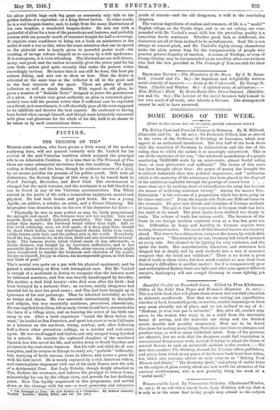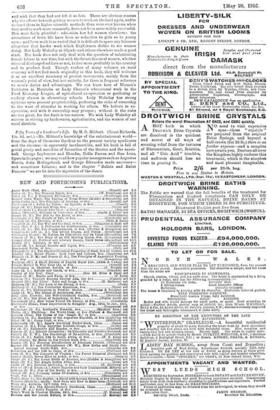Women and the Land. By Viscountess Wolseley. (Chatto and Windus.
5s. net.)—If we call this a timely book, Lady Wolseley will say that it is only so in the sense that to-day people may attend to the subject
and wish that they had not left it so late. There are obvious reasons why the efforts towards getting women to work on the land again, and to instruct them in higher scientific methods than were over known when they used to work more commonly, have not been more widely successful. Men were fairly plentiful : education has led women elsewhere the attractions of town life have been as seductive to girls as to young men : and farm work is so varied that it is difficult to spare any labourer altogether that harder work which Englishmen dislike to see women doing. But Lady Wolseley at Glynde and others elsewhere made a good start. Her book does not only deal with the question of substituting female labour in war time, but with the future fitness of women, whether wives of discharged soldiers or not, to live more profitably in the country and to produce food. Though readers of many volumes on rural economy will not find much originality in this book, they will welcome it as an excellent summary of present movements, mainly from the woman's point of view, but not entirely, for there is frequent reference to men's duties and advantages. We can learn hero of Women's Institutes in Manitoba or Lady Chance's educational work in the Food Economy League, of agricultural co-operation or gardening or cookery classes in elementary schools. Lady Wolseley has strong opinions upon peasant proprietorship, preferring the risks of ownership to the want of stimulus in working for others. We believe in co- operation, and with it ownership may prosper ; without it the risks are too great, for the basis is too narrow. We wish Lady Wolseley all success in stirring up landowners, agriculturists, and the women of our rural districts.































 Previous page
Previous page